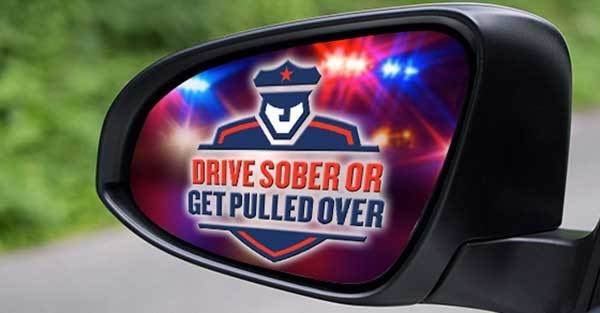
(BLOOMINGTON) – Troopers from the Indiana State Police Bloomington Post will be participating in the national Drive Sober or Get Pulled Over enforcement mobilization. Now through Labor Day, troopers will be conducting overtime patrols, seeking out drunk drivers and showing zero tolerance for anyone driving impaired.

These patrols are supported with funds from the National Highway Traffic Safety Administration distributed by the Indiana Criminal Justice Institute.
According to ICJI, in 2018, there were just under 4,000 alcohol-impaired collisions in Indiana, resulting in 83 fatalities. Of those, 48 collisions and one fatality occurred during the Labor Day holiday weekend.
In Indiana, it is illegal to drive with a blood-alcohol concentration of .08 or higher. Additionally, drivers under the age of 21 with a BAC of .02 or higher are subject to fines and having their license suspended for up to one year.
“Last year, one person died every 50 minutes in a drunk-driving crash in the U.S.,” said Devon McDonald, ICJI Executive Director. “Every one of those fatalities could’ve been prevented. Help us save lives by putting an end to this reckless behavior.”
For over 20 years, law enforcement agencies across Indiana have been participating in the Drive Sober or Get Pulled Over campaign. This year, more than 200 state and local law enforcement agencies will be taking part, joining thousands more across the country.
To avoid getting arrested, the Indiana State Police recommends planning a safe and sober ride home before consuming alcohol. Even if only one drink is consumed, designate a sober driver or plan to use a ride-share service, public transportation or taxi to get home safely. Remember, buzzed driving is drunk driving.
Additionally, don’t let someone get behind the wheel if that person has been drinking. Take their keys and help make arrangements to get them home safely. Motorists that encounter a drunk driver on the road are encouraged to call 911.
For more information about the campaign and additional safety tips, please visit: www.nhtsa.gov/drivesober.



